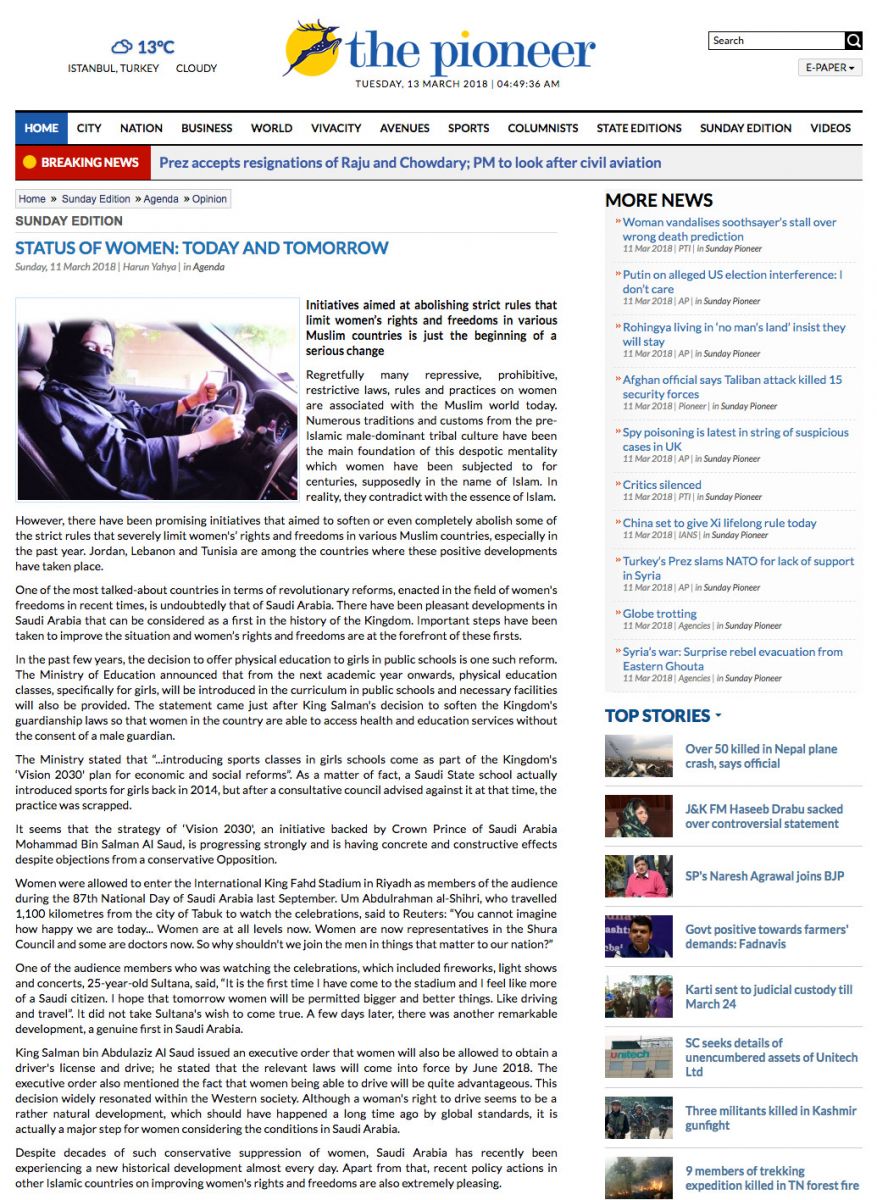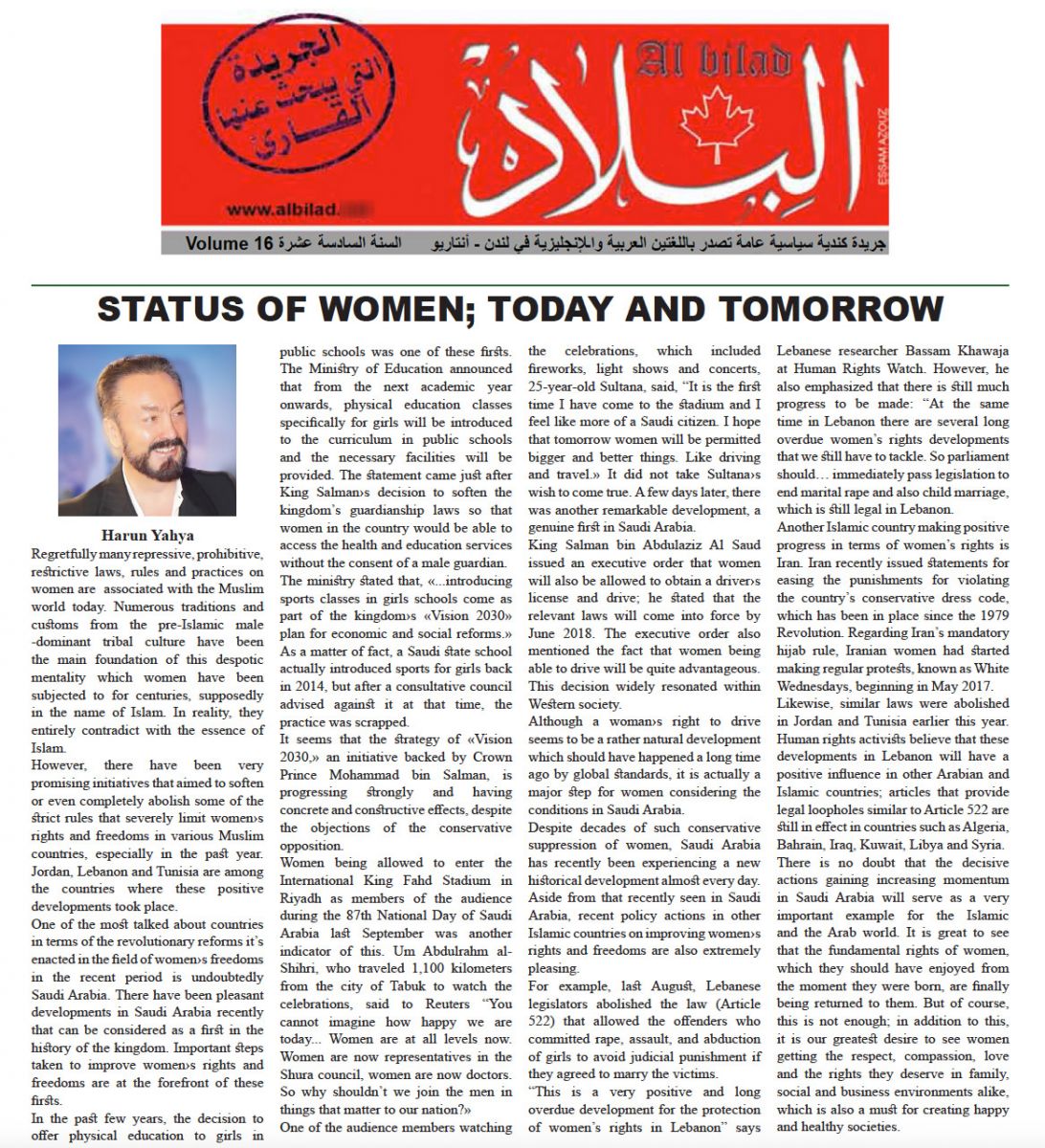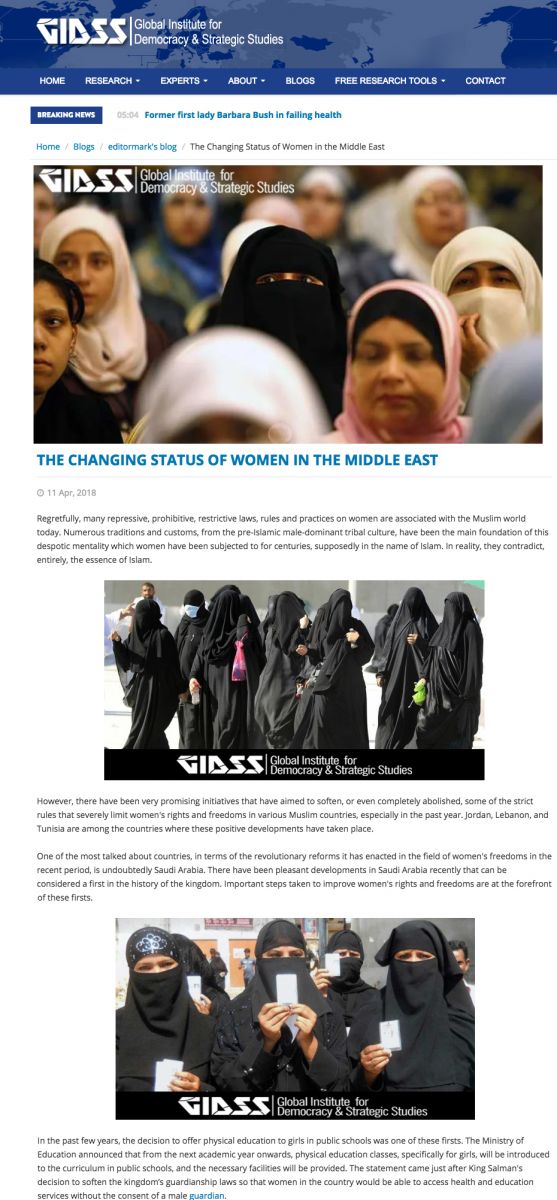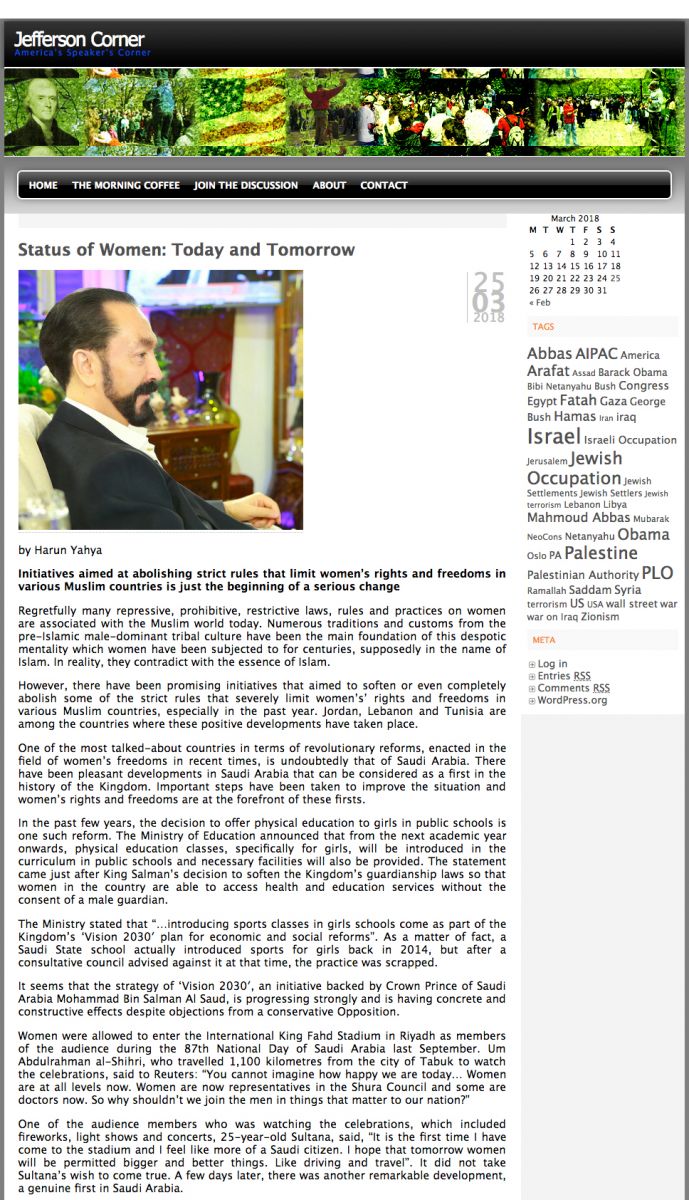Bigotry: The Dark Danger
Status of women: Today and tomorrow

Initiatives aimed at abolishing strict rules that limit women’s rights and freedoms in various Muslim countries is just the beginning of a serious change
Regretfully many repressive, prohibitive, restrictive laws, rules and practices on women are associated with the Muslim world today. Numerous traditions and customs from the pre-Islamic male-dominant tribal culture have been the main foundation of this despotic mentality which women have been subjected to for centuries, supposedly in the name of Islam. In reality, they contradict with the essence of Islam.
However, there have been promising initiatives that aimed to soften or even completely abolish some of the strict rules that severely limit women's’ rights and freedoms in various Muslim countries, especially in the past year. Jordan, Lebanon and Tunisia are among the countries where these positive developments have taken place.
One of the most talked-about countries in terms of revolutionary reforms, enacted in the field of women's freedoms in recent times, is undoubtedly that of Saudi Arabia. There have been pleasant developments in Saudi Arabia that can be considered as a first in the history of the Kingdom. Important steps have been taken to improve the situation and women’s rights and freedoms are at the forefront of these firsts.
In the past few years, the decision to offer physical education to girls in public schools is one such reform. The Ministry of Education announced that from the next academic year onwards, physical education classes, specifically for girls, will be introduced in the curriculum in public schools and necessary facilities will also be provided. The statement came just after King Salman's decision to soften the Kingdom's guardianship laws so that women in the country are able to access health and education services without the consent of a male guardian.
The Ministry stated that “...introducing sports classes in girls schools come as part of the Kingdom's ‘Vision 2030' plan for economic and social reforms”. As a matter of fact, a Saudi State school actually introduced sports for girls back in 2014, but after a consultative council advised against it at that time, the practice was scrapped.
It seems that the strategy of ‘Vision 2030', an initiative backed by Crown Prince of Saudi Arabia Mohammad Bin Salman Al Saud, is progressing strongly and is having concrete and constructive effects despite objections from a conservative Opposition.
Women were allowed to enter the International King Fahd Stadium in Riyadh as members of the audience during the 87th National Day of Saudi Arabia last September. Um Abdulrahman al-Shihri, who travelled 1,100 kilometres from the city of Tabuk to watch the celebrations, said to Reuters: “You cannot imagine how happy we are today... Women are at all levels now. Women are now representatives in the Shura Council and some are doctors now. So why shouldn't we join the men in things that matter to our nation?”
One of the audience members who was watching the celebrations, which included fireworks, light shows and concerts, 25-year-old Sultana, said, “It is the first time I have come to the stadium and I feel like more of a Saudi citizen. I hope that tomorrow women will be permitted bigger and better things. Like driving and travel”. It did not take Sultana's wish to come true. A few days later, there was another remarkable development, a genuine first in Saudi Arabia.
King Salman bin Abdulaziz Al Saud issued an executive order that women will also be allowed to obtain a driver's license and drive; he stated that the relevant laws will come into force by June 2018. The executive order also mentioned the fact that women being able to drive will be quite advantageous. This decision widely resonated within the Western society. Although a woman's right to drive seems to be a rather natural development, which should have happened a long time ago by global standards, it is actually a major step for women considering the conditions in Saudi Arabia.
Despite decades of such conservative suppression of women, Saudi Arabia has recently been experiencing a new historical development almost every day. Apart from that, recent policy actions in other Islamic countries on improving women's rights and freedoms are also extremely pleasing.
For example, last August, Lebanese legislators abolished the law (Article 522) that allowed offenders, who committed rape, assault, and abduction of girls to avoid judicial punishment if they agreed to marry the victims. “This is a very positive and long overdue development for the protection of women's rights in Lebanon”, said Lebanese researcher Bassam Khawaja at Human Rights Watch.
However, he also emphasised that there is still much progress to be made: “At the same time, in Lebanon, there are several long overdue women's rights developments that we still have to tackle. So the Parliament should… immediately pass legislation to end marital rape and also child marriage, which is still legal in Lebanon”.
Another Islamic country making positive progress in terms of women's rights is Iran. Iran recently issued statements for easing punishments for violating the country's conservative dress code, which has been in place since the 1979 revolution. Regarding Iran's mandatory hijab rule, Iranian women had started making regular protests, known as White Wednesdays, beginning in May 2017.
Likewise, similar laws were abolished in Jordan and Tunisia earlier this year. Human rights activists believe that these developments in Lebanon will have a positive influence in other Arabian and Islamic countries; articles that provide legal loopholes similar to Article 522 are still in effect in countries such as Algeria, Bahrain, Iraq, Kuwait, Libya and Syria.
There is no doubt that the decisive actions gaining increasing momentum in Saudi Arabia will serve as an important example for the Islamic and the Arab world. It is great to see that the fundamental rights of women, which they should have enjoyed from the moment they were born, are finally being returned to them.
But of course, this is not enough. In addition to this, it is our greatest desire to see women getting the respect, compassion, love and the rights they deserve in family, social and business environments alike, which is also a must for creating happy and healthy societies.
Adnan Oktar's piece in The Pioneer (India) & Al Bilad (Canada) & GIDSS (USA) & Jefferson Corner (USA):
http://www.dailypioneer.com/sunday-edition/agenda/opinion/status-of-women--today-and-tomorrow.html
https://gidss.com/content/changing-status-women-middle-east
http://www.jeffersoncorner.com/status-of-women-today-and-tomorrow/










